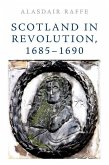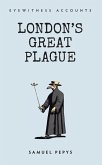By using contemporary accounts, many not previously published in English The Campaigns of Bernhard von Saxe-Weimar covers many of the major battles of the Thirty Years War, including Wimpfen, Stadtholn, Lutzen, Nordlingen, Wittenweier and Rheinfelden and many others. Bernhard also took part in many sieges such as S'Hertogenbosch, Regensburg and Breisach. It also looks at the Danish and Hessian Armies which Bernhard served with and the impact on the local population, especially during the campaigns on the Rhine in 1635 to 1639 when famine was widespread. Bernhard is seen as an enigma, because some saw him as a military entrepreneur, while in Germany he is seen as a hero for standing up for German rights, whereas he is a hero to the French since because of his conquests they gained Alsace. He was one of the first German commanders to join Gustavus Adolphus in 1630 and it was to him that Wallenstein appealed shortly before his assassination in 1634. In 1639 Bernhard died, but was it by was natural causes or murder? Given its content The Campaigns of Bernhard von Saxe-Weimar will appeal to both historians and wargamers.
Bitte wählen Sie Ihr Anliegen aus.
Rechnungen
Retourenschein anfordern
Bestellstatus
Storno








